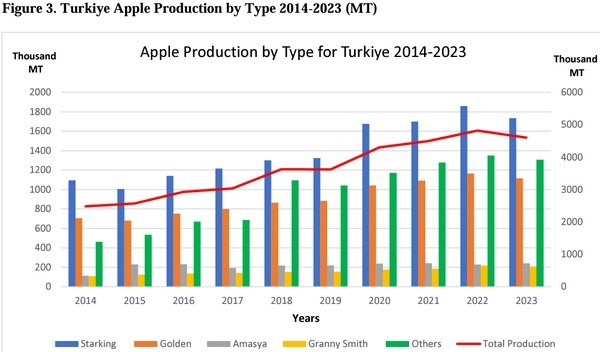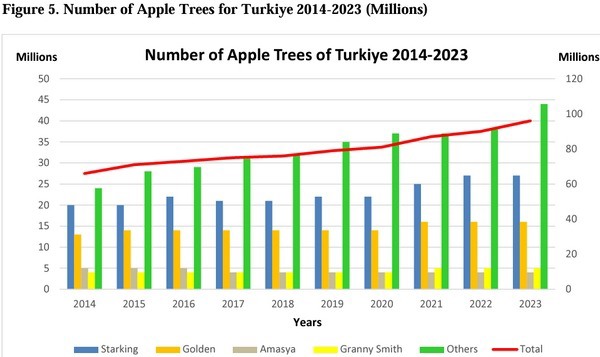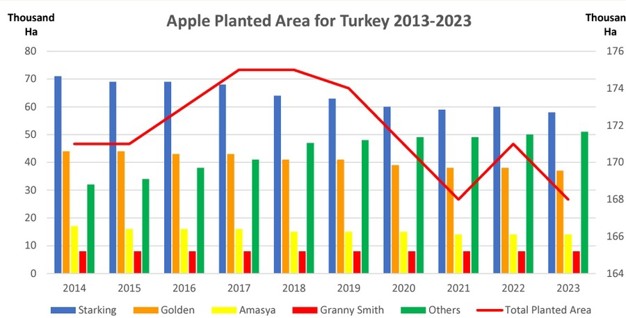Turkiye's commercial apple production in MY 2024/25 is forecast to fall to a five-year low because of unusually dry and warmer weather conditions, which growers say is caused by climate change. Even though production is down, apple exports are forecast higher year-on-year and expected to be the third largest on record. In contrast to apples, commercial pear production is projected to reach a record as weather conditions were better in the key pear-growing areas. With higher production, pear consumption, and exports are likewise forecast higher. Commercial grape production is projected higher than last year, but still below the long-term average because of losses resulting from mildew disease.
Production For the MY 2024/25 season, commercial apple production is forecast at 4.0 million metric tons (MMT), which is down 13 percent from last year's newly revised estimate due to unfavorable growing conditions in the major apple-growing regions. Some industry contacts are predicting production will drop even lower, while the Turkish Statistical Institute's (TUIK) forecast is more optimistic than both industry and Post. Meanwhile, MY 2023/24 production was adjusted lower based on the latest official data.
Growers are blaming climate change for the drop in production. Warmer temperatures, dry weather conditions, and shortages of irrigation water were cited as the main culprits. The economic losses resulting from this drop in production and lower quality fruit will be a significant setback for many growers who continue to grapple with rising input costs for water, labor, and pest control products.
In the province of Isparta – the leading apple-producing region in the country, accounting for a quarter of national production – winter temperatures in 2024 did not go below freezing (0 Celsius / 32 Fahrenheit) all winter long, resulting in fewer winter buds and apples at harvest time. In addition, dry weather and shortages of irrigation water negatively impacted production. Water levels in Lake Egridir, the main source of irrigation water for the region, reached alarming levels because of inadequate rainfall for the past few years. In response, the provincial government limited the use of irrigation water coming from the lake. As a result of this restriction, some orchards located further away from the lake could not get enough water, which stunted the size of the apples and made them too small to be sold in local or international markets. In addition, some of the apples in the Isparta region were also damaged because of hail. These smaller and, in some cases hail-damaged apples, will be diverted to juice production.
To view the full report, click here.
For more information:
USDA
Tel: +1 (202) 720-2791
Email: [email protected]
www.usda.gov













